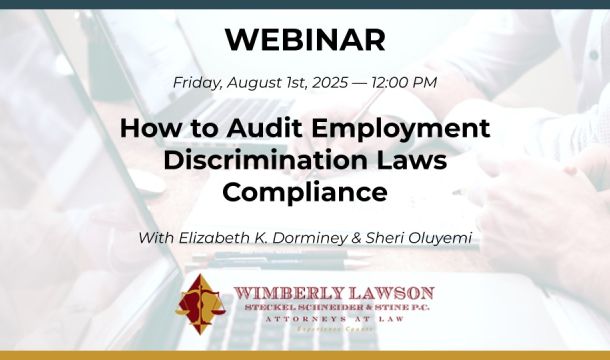On August 7, 2019, seven food processing plants in Mississippi were the subject of “raids" conducted by Immigration and Customs Enforcement (ICE). The Secretary of the U.S. Department of Homeland Security said the raids had been planned for approximately a year. In some respects, such raids are hardly news: ICE conducted enforcement actions for many years, though the last ones targeting poultry processors occurred approximately 10 years ago. But in last week’s raids, ICE conducted high-profile actions at 7 facilities owned by 5 different companies: Peco Foods, Koch Foods, PH Food, Pearl River Foods and MP Food Inc., almost all poultry processors. Nearly 700 employees were arrested for possible immigration violations: 300 were released the same day. As of this writing, only approximately 370 remain in custody in a Louisiana detention facility. ICE also reported that 18 children were found to be working illegally in the plants.
The practice of conducting raids was instituted in the last three years of the Bush Administration as an immigration enforcement tool. However, enforcement officials soon concluded that so-called "silent raids" were more effective because desk audits of companies could be conducted on a broader scale. The Obama Administration was a zealous enforcer of the immigration laws and deported more aliens than all three preceding administrations combined. A few isolated immigration raids were re-instituted during the first two years of the Trump administration. But the recent food processing raids in Mississippi -- the largest single-state workplace enforcement action in the country, ever -- seem to be of a different nature altogether since they appear to target a single industry in a relatively small geographic area.
How were these facilities selected? Mississippi’s Clarion Ledger (Aug. 9, 2019) reports that on Monday, August 5, ICE applied for search warrants for the seven plants. Court records had been sealed until a U.S. Magistrate Judge approved a motion to open them on August 8.
Affidavits submitted by ICE in support of the warrant applications stated that, for years, temporarily detained undocumented workers — from as far as El Paso, Texas, and Yuma, Arizona —had employment cards from plants in Mississippi. The presence of former detainees was supported by electronic ankle monitor readings, surveillance, and confidential informants. One affidavit stated that between November 18, 2002 and June 13, 2019, approximately 222 undocumented workers detained by authorities indicated that they had worked at Peco Foods; similarly, between Sept. 10, 2002 to April 13, 2019, about 144 undocumented workers told authorities they worked at Koch Foods in Morton or Forest, Mississippi.
The affidavits also revealed new approaches used by ICE on one or two of the companies that were particularly interesting in addition to the above. At one of the plants, ICE checked the license plates in the parking lot and determined the owners of the vehicles. ICE then compared the owners of the vehicles to the employees' names at the plant as determined by tax forms filed with the state. They found very few employees at the plant that corresponded to the names of the owners of the vehicles, a factor ICE considers to indicate a lot of illegals. Apparently, illegals tend to register their cars in their true names, but use fictitious names to seek employment. In another approach, at one of the two plants ICE found that the company had selectively utilized E-Verify, apparently E-Verifying only those that were expected to pass the E-Verify system. A further technique was not only to use audio, but also video recordings on informants, sometimes coming in and admitting to an HR hiring person that they would not pass the verification system, only to return a week or so later and talk to the same HR person utilizing a different fictitious name.
ICE agents analyzed employee rolls at Pearl River Foods in Carthage, Mississippi, and found that numerous workers were using stolen identities, Social Security cards that didn't match their names, or numbers that reportedly belonged to dead people. In at least two cases at Pearl River Foods, the allegedly stolen personal information came from people who discovered that someone else had applied for work using their names when they tried to apply for food assistance or unemployment benefits. A confidential informant had reported that, at PH Food in Morton, Mississippi, the vast majority of the immigrants employed at the plant were undocumented and using fake biographical information.
Penalties for Employers. The warrant applications accused the employers of "willfully and unlawfully employing" undocumented workers. Federal law prescribes a $3000 maximum penalty (per worker) and 6 months in jail for intentionally hiring an undocumented worker. There could be criminal prosecution as well, but so far, no employer has been charged with any crime.
The critical question will be whether the employers knew that the individuals they were hiring were not authorized to work in the U.S. Most large employers, such as Koch Foods and Peco Foods, use the Federal government’s E-Verify system, which is supposed to identify a worker’s status. But E-Verify is not 100% accurate. The I-9 form that all employers must use to verify worker eligibility requires an employer to accept documentation offered by the employee and prohibits most further inquiry. Poultry processors have been sued by the Federal government for seeking to verify documentation in some situations. Good forgeries and false identities also can subvert the system.
Many employers erroneously believe that using the government’s E-Verify system protects them from fines. That’s not necessarily so, but it does raise the bar considerably for the prosecutor to show that the employer knowingly hired an unauthorized worker. Another shortcoming of E-Verify is that it only works on new hires: you can’t go back and check the credentials of existing workers.
In a few enforcement cases, there have been substantial criminal fines in addition to the normal penalties, and, in at least two cases, the amount of the penalties has exceeded $1 million. These more expensive situations have occurred where there is potential criminal prosecution for knowingly hiring unauthorized workers.
Why poultry processors, and why now? There seems to be multiple factors at work within ICE. First, ICE seems intent on tough enforcement and increasing deportation of illegal immigrants. So far, the number of deportations during the Trump Administration lags far behind the numbers racked up during the Obama Administration. On the other hand, many ICE officials across the country have been reassigned to duties along the Mexican border, making it more difficult for ICE to gather the personnel to conduct raids. The demands on their workforce notwithstanding, ICE plainly made these unprecedented raids a priority. Given the resources and preparation brought to bear on these raids, ICE may lack the resources to conduct many large raids in the near future. Although he declined to speculate as to future plans, an ICE spokesperson did say they had no current plans to conduct similar raids in Georgia, which is the largest chicken processing state in the U.S. However, the raids also indicate that ICE is ready to take on large scale operations and target specific industries and geographic areas.
How does ICE select its targets? An enforcement action usually begins with an ICE desk audit. Sometimes an informant complains to ICE, or ICE may send in undercover agents to check out accusations. At other times an illegal "ring" of fraudulent document providers is discovered primarily directing their activities toward a given facility or area. Affidavits submitted in support of the Mississippi search warrants cited complaints, but also ankle monitor evidence showing that individuals previously detained and released, and lacking work authorization, had spent long hours at the plants.
The raids at Koch Foods and Peco Foods were unusual also in that they were not preceded by an ICE desk audit, and apparently there was no prior notice to those companies. Both Koch and Peco are leading poultry processors with good records for regulatory compliance. It bears noting that while there were many arrests overall, the percentage of arrestees at the large plants, compared to the total number of their employees, was small.
Recommendations: There is no way to guarantee that your business will be beyond the reach of ICE, but there are steps you can take to minimize the risk:
- Use E-Verify. It’s not a guarantee, but it is certainly a step in the right direction.
- Audit yourself. A periodic review of I-9s may bring anomalies to your attention before they come to ICE’s attention. You can conduct an audit yourself or use outside help. If you have legal counsel conduct your internal audit, the results are subject to the attorney-client privilege and you cannot be forced to disclose them.
- Use what you learn. If the audit reveals a potential problem, contact the affected employee and give them an opportunity to make a correction. In the recent Mississippi raids, some employees who were arrested had their documentation with them and were speedily released when their papers showed that they had work authorization.
- Develop protocols to follow if an audit or raid occurs.
- Issue a memo to all supervisors and managers informing them of the requirements of the immigration laws, directing them to report any knowledge of illegal status on the part of any worker to a designated management official.
- When you receive evidence or reports of illegal status on the part of any worker, promptly conduct an internal investigation and keep an "immigration investigations log" of each incident and the conclusions.
- Set up and follow a protocol upon receipt of a "Social Security mismatch" communication.
- Confer with an attorney knowledgeable about the immigration laws upon receipt of an ICE I-9 audit, including how to respond to the audit, and how to respond to the results of the audit communicated by ICE.
If you are the subject of a raid:
- Be polite to law enforcement officials but know your rights.
- Call your lawyer.
- Cooperate, but do not volunteer information. You will be awarded no points for being "nice."
- Carefully review any warrant to understand its scope. The warrant should have a detailed description of when and where agents are going to search and what they may seize. You may need to limit your consent to their search depending on the terms of the warrant. You do not have to let them search beyond the scope of the warrant.
- You do not have to answer ICE questions during a raid. Make a note of the questions and submit the answers later.
- Seek advice of counsel as to whether you should consent to ICE agents speaking to your employees on the premises.
- ICE can interview hourly employees privately, but a management representative (or counsel) may be present if they want to interview a manager.
COMMENT: The poultry industry feeds the nation and provides good jobs to thousands of workers who might not find employment opportunities elsewhere. But it suffers from an image problem and the media seems to delight at taking pot-shots at poultry processors. The immigration debate has grown increasingly emotional, fueled by mass-media images of crying children. Pressure to enforce existing immigration laws collides with pressure to help migrants share the American dream. Your best defense is to do all you can to ensure compliance before the ICE agents arrive.
Questions? Need more information?
Contact Jim Wimberly (jww@wimlaw.com), Jim Hughes (jlh@wimlaw.com) or Elizabeth Dorminey (bdorminey@bellsouth.net) or call 404-365-0900.
Related Content
Get Email Updates
Recent Content

TPS Update (as of 2/6/2026)

Job Interviews Can Be a Good Selection Device

Suggestions on How to Diffuse a Tense Situation

Employers Blame Unions for Recent Shutdowns

$27 Million Verdict against Employer on Disability Discrimination over Refusal to Return Employee to Work



